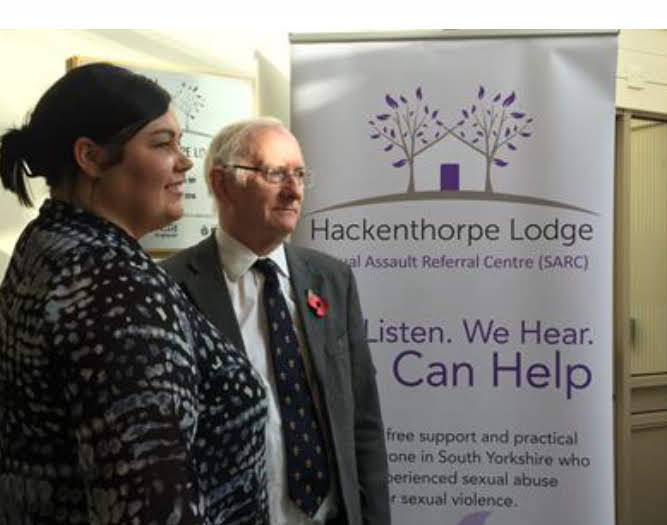PCC Blog 18
Rape is an appalling crime.
And we want those who are victims to know that if they find the courage to speak to the police, they will be sympathetically treated and find justice.
Yet in 2018-19, while 58,657 allegations of rape were made, only 1,952 successful prosecutions followed. This is a bleak picture. As the Chief Inspector of the Crown Prosecution Service (CPS) said in a report, ‘.. something must be wrong.’
Indeed. But for victims of rape, this is not just a bleak picture but one that is likely to cause them to think twice before reporting to the police. What victims of this crime need as much as anything is confidence in the system to deliver justice and these figures do little to instil that confidence.
So what is going wrong?
There is a review underway which, hopefully, will have an answer. Or more likely a series of answers, since if there were only a single cause it would surely have been fixed by now.
There is no doubt that the years of austerity have had an impact – fewer resources for both police and the CPS. But many women’s and victims’ groups have also alleged that in 2016 the CPS made a conscious decision not to pursue what they regarded as ‘weak’ cases, in order to boost the number of convictions. A ‘weak’ case might be one where there was little forensic evidence and the verdict was going to turn on whether a jury believed the victim or the accused when they give their accounts in court – a subjective judgement rather than one based more on physical or digital evidence. The Chief Inspector did not think the CPS had told prosecutors to increase the conviction rate by rejecting less certain cases, but it would not be surprising if, at a time when resources were tight, the CPS felt the need to maximise the number of more assured prosecutions and in the process became more risk averse. This would not need to be a conscious decision. But changing that mindset – if it exists – would be.
Whatever the reasons for the relatively small number of prosecutions and convictions compared with the number of allegations, as we wait for the review to conclude, I must do what I can to make it as easy as possible for rape victims to get help, and then to support them if they decide at any point to report the assault to the police.
This is why we set up in 2016 the Sexual Assault Referral Centre (SARC) for South Yorkshire at Hackenthorpe Lodge – a refurbished former police station in Sheffield. The SARC is as welcoming as any building could be for people who have suffered such a terrible experience as rape. There are two examination rooms, a family room and areas where people can just sit and talk. And there are sympathetic support workers who will advise victims, explain the criminal justice system and give them support should they decide to involve the police and pursue a criminal charge against their abuser. There is also a video link to the courts, which they can use if being in a court building just feet from the person who abused them is likely to cause yet more fear and distress.
There could scarcely be a more traumatic crime than rape. We all have to do everything we can to close that wide gap between allegations and convictions.
The police during the lock-down
An important part of my role is to hold the force to account. This doesn’t mean constantly finding fault with what they do but ensuring, by asking questions and observing, that what they do is effective and ethical and in line with the priorities in the Police and Crime Plan. This work goes on all the time. But occasionally, something out of the ordinary happens and I need to get reassurance around that: how did the police respond and are there any lessons to be learnt? The advent of coronavirus and the enactment by the government of emergency powers to deal with it presented just such a challenge to the force.
So I asked my Independent Ethics Panel to look back over the period of the lock-down to see how the police had responded. Did they understand the powers they had been given and exercise them correctly and proportionately – including Fixed Penalty Notices (fines)? Did they distinguish between requirements that could be legally enforced and government guidance that was only that – guidance? Above all, did they retain the trust and confidence of the public throughout?
You can read the very comprehensive report elsewhere on the website (Independent Ethics Panel Reports). They make some suggestions for the police to follow up – including trying to understand why BAME people were more likely to be fined than non-BAME.
But the broad conclusion gave me reassurance: “Our assessment … is that the public generally has a high level of trust and confidence in SYP in the Covid19 context and that there is widespread consent for the manner in which the county is being policed.”
It could have been very different.
The Independent Ethics Panel
Several members of the panel, who have served us so well for the past few years, have their term of office ending in September. I thank those who are retiring, whom we shall very much miss: Andrew Lockley (Chair), Michael Lewis, Sheikh Mohammad Ismail and Professor Ann Mcaskill.
It does, however, mean that we need some new members. If you are interested in the ethical issues that face the modern police force – facial recognition technology, the use of force, stop and search, etc – or perhaps know someone who might be, please do take a look at the job advertisement and application process: Independent Ethics Panel Recruitment
Keep safe and well.




